Jewish History
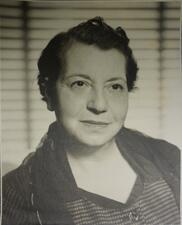
Hélène Cazes Benatar
Hélène Cazes Benatar was a Moroccan-born human rights lawyer who rescued thousands of refugees in North Africa during World War II. She was a life-long advocate for individual rights and political equality, especially for disenfranchised Maghrebi Jews. During World War II, she fought to protect victims of pro-Fascist Vichy rule; post-war, she promoted the migration of Moroccan Jews to Palestine and elsewhere.
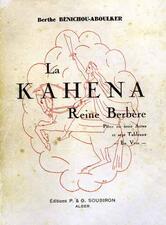
Berthe Bénichou-Aboulker
Writer and artist Berthe Bénichou-Aboulker was born in Oran, French Algeria, in 1886. She published a number of collections of poems and plays. After publishing her first play in 1933, she became the first woman writer to be published in Algeria.
Margarete Berent
Margarete Berent was the first female lawyer to practice in Prussia and the second female lawyer ever licensed in Germany. In 1925 she opened her own law firm in Berlin and, after fleeing Nazi Germany, opened her own firm in the United States. Not only was she the first female lawyer and the head of her own law firm, but she was also an ardent feminist and active in promoting opportunities for women.
Raissa L’vovna Berg
Raissa Berg worked was an eminent geneticist until Soviet Russian policies forced her out of her job. Nevertheless, she continued her research at home, eventually discovering “correlative Pleiades” in plants, and later contributed significantly to the reestablishment of the scientific field of genetics in Russia during her brief reinstatement. After emigrating to the United States, Berg remained active until her death in 2006.
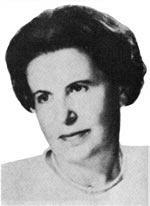
Lili Berger
A prolific literary critic and essayist who wrote fiction, short stories, and novels, Lili Berger worked to educate, instruct, expose, and memorialize. Her works captured the Polish-Jewish experience in the twentieth century, particularly those of other writers and artists.
Gretel Bergmann
Gretel Bergmann was a highly successful German track and field athlete. While studying at London Polytechnic, she became the British high jump champion in 1934. Returning to Germany to train for the 1936 Olympics in Berlin, she was denied entry to the German team even though she tied the German high jump record of 1.60 meters.
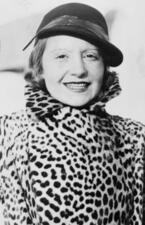
Elisabeth Bergner
Elisabeth Bergner, born in Austrian Galicia, was one of the most successful and popular stage and screen actresses in pre-World War II Germany, known for her superior artistic skills and wide variety of roles. During the war, she helped actors escape Germany. She was honored with the Schiller Prize of the City of Mannheim, the Ernst Lubitsch Prize, and the Austrian Cross of Merit for Science and Art.
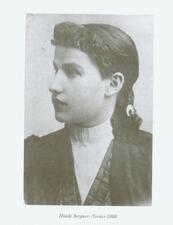
Hinde Bergner
Hinde Bergner holds a special place in Yiddish literature by virtue of the fact that her memoir of family life in a late nineteenth-century Galician shtetl is one of few extant Yiddish memoirs to describe the traditional Jewish family on the edge of modernity from the perspective of a woman. Her intimate portrayal of her life results in a valuable source for Jewish social, family, and women’s history.
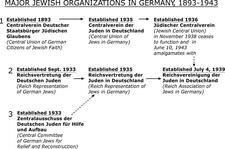
Cora Berliner
Cora Berliner was an economist and social scientist who held leadership positions in several major Jewish organizations in Germany between 1910 and 1942. These organizations included the Association of Jewish Youth Organizations in Germany, the Reich Representation of German Jews, and the League of Jewish Women.
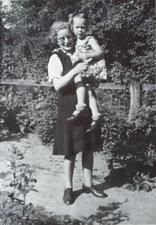
Clementine Bern-Zernik
A lawyer by training, Vienna-born Clementine Bern-Zernik produced broadcasts for the US Office of War Information in London during the war, served as the director of a Displaced Persons Camp in post-war Germany, and spent the last 50 years of her life as a UN liaison to the New York Public Library. Throughout her life she maintained a strong Austrian identity and was a founding member of the Austrian-American Federation.
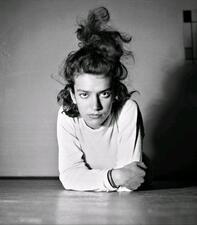
Eva Besnyö
Photographer and photojournalist Eva Besnyö was born in Budapest in 1910. In the 1930s Besnyö moved to Berlin, where she quickly became successful with numerous exhibitions and commissions and spent time with politically engaged intellectuals and artists. Following the war, Besnyö was active in the Dolle-Mina feminist movement and was awarded the Dr. Erich Salomon Award for her life’s work.
Meta Pollak Bettman
Meta Pollak Bettman was an untiring volunteer in Jewish and civic causes in the early twentieth century.
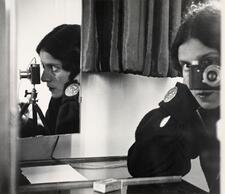
Ilse Bing
Ilse Bing was known as the “Queen of the Leica” for her work in photojournalism, fashion, and advertising with this new camera, fast film, and darkroom techniques of polarization and cropping. Her work was highly influential in France in the 1930s when many émigré artists were energized by the cross fertilization of disciplines that contributed to modern photography.
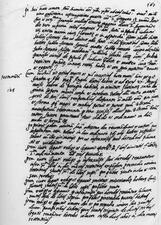
Ginevra Blanis
Ginevra Blanis was a late sixteenth-century silk manufacturer of the Florentine ghetto and Siena. She left her mark as a founder of the young community with her philanthropy and in the public communication of what she considered Jewish values in the provisions of her will.
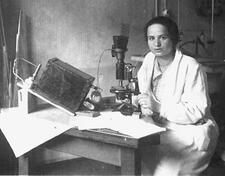
Marietta Blau
German physicist Marietta Blau joined the Institut für Radiumforschung, where she developed an emulsion technique for recording the tracks of particles that allowed her to detect neutrons and observe nuclear disintegration caused by cosmic rays. Forced to emigrate in 1938, worked for the US Atomic Energy Commission and later taught at the University of Miami. Throughout her career, she faced discrimination for her religion and gender and was denied paid work.
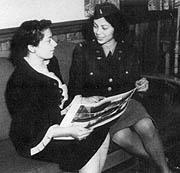
Matilda and Bernice Blaustein
Miranda Bloch
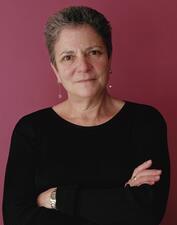
Gay Block
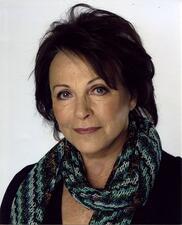
Claire Bloom
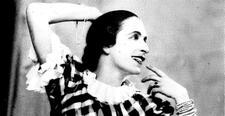
Gertrud Bodenwieser
A member of the first generation of modern dancers in Vienna, Gertrud Bodenwieser developed her own style of modern Ausdruckstanz (expressionist dance). From her studio in Vienna, she established the Bodenwieser Dance Group and went on to tour Europe, Japan, and Columbia. In 1938, she immigrated to Australia and played a significant role in the development of modern dance there.
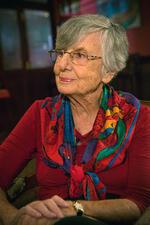
Ruth Bondy
Ruth Bondy was an author, a journalist, and a gifted translator. Born in Prague to a large Zionist family, the majority of whose members perished in the Holocaust, Bondy survived Theresienstadt and Auschwitz-Birkenau and arrived in Israel in late 1948. She soon became a journalist, and eventually began to write biographies and translate from Czech to Hebrew.

Hansi Brand (Hartmann)
Hansi Hartmann started helping escaped Jewish refugees in Hungary with her husband Joel in 1938. She later played a central role in The Relief and Rescue Committee, founded by Joel in 1942, and went on to save thousands of Jews. After the war, she emigrated to Palestine and gave critical testimony at the Kasztner and Eichmann Trials.
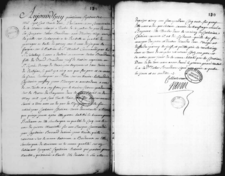
Esther Brandeau
Esther Brandeau was born in southwestern France around 1718, descended from exiles of the Inquisition in Iberia. Brandeau passed as Christian and male across France for five years before setting sail as Jacques La Fargue. Doubly outed at or en route to Québec, Brandeau | La Fargue was ultimately deported from New France, purportedly for refusing to convert to Christianity.
Ruth Light Braun
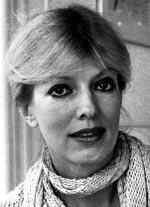
Suzanne Brøgger
Suzanne Brøgger is a Danish journalist, cultural critic, author, and essayist. With more than twenty books to her name, Brøgger has received widespread acclaim for her novels, essays, anthologies, poems, and plays.


